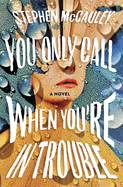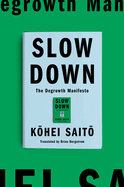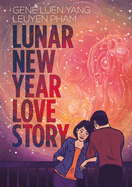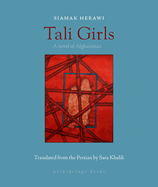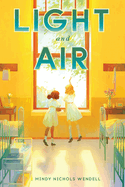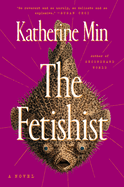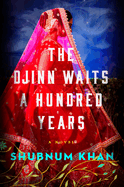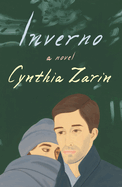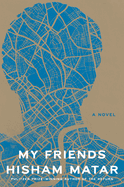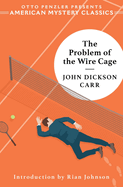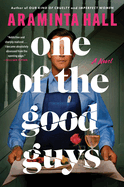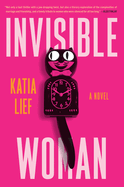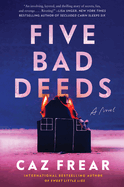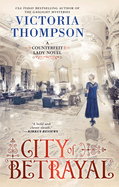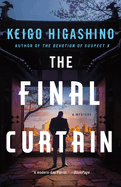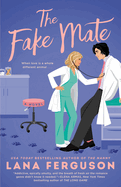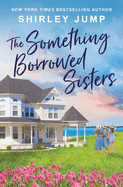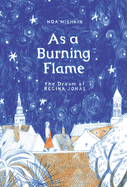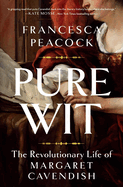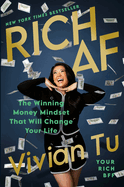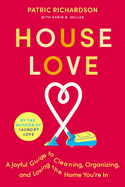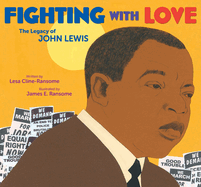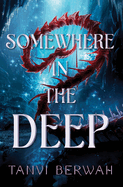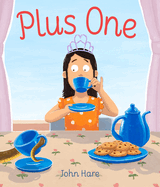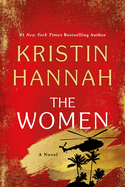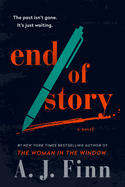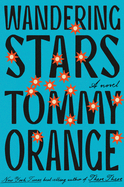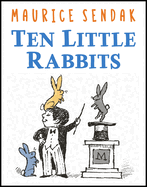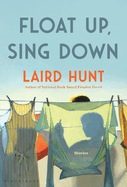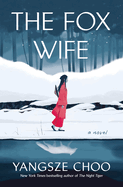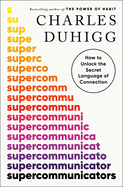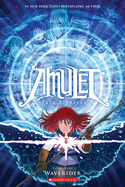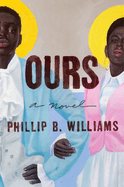Friday, January 12, 2024
Among the standout fiction reviewed this week: in his "closely observed" eighth novel, You Only Call When You're in Trouble, Stephen McCauley brings a "whole family into greater clarity, developing a portrait that may be his best yet"; Katherine Min's posthumous The Fetishist, "an impeccable, surprisingly humorous, utterly poignant novel" centers an Asiaphilic lothario and the women who love (and hate) him; and Lunar New Year Love Story, Gene Luen Yang's "touching and entertaining YA graphic novel," illustrated by LeUyen Pham, follows a Vietnamese American teen desperately seeking true love despite her family's history of tragic romances. Plus so many more!
In The Writer's Life, Robert Glück, author of About Ed, discusses the books that matter to him.
You Only Call When You're in Trouble
by Stephen McCauley
In You Only Call When You're in Trouble, Stephen McCauley (My Ex-Life) brings one small, unconventional family under a closely observed lens. At age 63, Tom Kemp has acted as a stabilizing force for his flighty sister, Dorothy, and fatherless niece, Cecily, for decades. And although he doesn't exactly resent them for it, he's in the midst of a make-or-break moment in his career as an architect in Boston. He will need all his faculties and focus when it comes to selling the design of his tiny-house masterpiece to his clients Charlotte Morley and Oliver Fuchs. Especially since Charlotte has decided to change her mind about the whole thing at the last minute.
There could be no worse time for Tom to learn that Cecily is facing a Title IX investigation at Deerpath College in Chicago, where she is a professor of American studies. The allegations concern the nature of a relationship that developed with a student, who then kissed her. Add to all that Dorothy's invitation for everyone to join her at the grand opening of an inadvisable retreat center in Woodstock, N.Y., not to mention the teensy-tiny matter of Cecily's true paternity--and You Only Call When You're in Trouble positively teems with situational comedy, dramatic secrets, and hard-earned wisdom.
McCauley writes sentences that ring with the clear and true tones of melodies spun from crystal glassware: "[Tom] sometimes felt as if he were in a nail-biting race with the planet to see which of them died first." His incandescent mixture of observational humor and humane characterizations makes Stephen McCauley worth calling on again and again. --Dave Wheeler, associate editor, Shelf Awareness
Discover: Family ties are tested at a most hectic three-way crossroads, making Stephen McCauley's eighth novel his best yet.
Tali Girls: A Novel of Afghanistan
by Siamak Herawi, transl. by Sara Khalili
Although the subtitle declares Siamak Herawi's riveting Tali Girls to be a novel, his dedication immediately announces that two of the three girls' intertwined stories are true, transforming harrowing fiction into unbearable reality. Tali Girls, lucidly translated from the 2018 Persian original by award-winning Sara Khalili, is both a provoking exposé and wrenching homage to the girls and women of Herawi's birth country.
In 2006, the villagers in remote Tali "still have no electricity, no plumbing for water, no paved roads... no doctors, no medicine!" Despite declarations by religious leaders that children will be "corrupted" if a school is built, a year later three young girls--Kowsar, Simin, and Geesu--are among the children granted the hope of an education. Kowsar, despite fainting spells, is an "unrivaled genius." Simin, at nine, is sold to a vile, corrupt official, decades her senior. Geesu, whose raging father relentlessly beats her without cause, dares to believe in the promise of true love. The girls struggle to survive in a stifling, vicious environment debilitated by Taliban control. "Girls like me are alive but have no life. We are property," Geesu presciently observes.
Kowsar and Simin's experiences are based in reality, and the abuse that the latter faces requires strong warnings of heinously graphic violence. What prevents Herawi's writing from devolving into prurient voyeurism is a remarkable ability to delicately intertwine the horror with quotidian humanity: a father's smile, the "euphoric" taste of chocolate, the "joy and kindness" of sharing precious bread. "Read... to understand the world around you," a brave teacher once demanded of Kowsar. Audiences granted such privileged access here should obey this urgent charge. --Terry Hong
Discover: Siamak Herawi's devastating novel deftly intertwines horrific abuses and quotidian joy to bear witness to the complex lives of girls and women in contemporary Afghanistan.
The Fetishist
by Katherine Min
"This is... a fairy tale of sorts," writes author Katherine Min (Secondhand World) in a mischievous note to her posthumously published novel, The Fetishist. "And because it is a fairy tale, it has a happy ending... depending on where you put THE END." Min opens with Japanese American punk musician Kyoko, who's planning to avenge her mother Emi's suicide by punishing the fickle (white) Lothario who discarded her. Kyoko is "more Hello Kitty than killer," but murdering Daniel is the only way to alleviate the anger, hate, and grief that's "deformed" her young life.
Since that brief affair with Emi, Daniel has devolved from a violinist of some renown to performing private concerts for the "dying and newly dead"; in middle age, though, he's still seducing young (Asian) women. On the other side of the country, Korean American cellist Alma, Daniel's vibrant, singular soulmate who he irrevocably lost 20 years ago because of his careless liaison with Emi, is painfully succumbing to the MS that's already robbed her of her precious music.
Wending back and forth over decades, Min reveals these intertwined lives: desperate Emi killed by love, frenzied Kyoko trapped in the past, fading Alma isolated by regret and illness. What binds them together is Daniel, the titular fetishist. Min's focus is magnificently aimed at dissecting, confronting, and exposing the fetishization of Asian women, but she never loses sight of engaging, inventive, playful storytelling. Balancing biting humor, wrenching despair, and unexpected redemption, Min radiantly succeeds in delivering that promised (mostly, cautiously) happy ending. --Terry Hong
Discover: Katherine Min's posthumous The Fetishist is an impeccable, surprisingly humorous, utterly poignant novel about an Asiaphilic Lothario and the women who love (and hate) him.
The Djinn Waits a Hundred Years
by Shubnum Khan
Set in the coastal city of Durban, South Africa, and seasoned with an atmospheric eeriness, The Djinn Waits a Hundred Years by Shubnum Khan features a crumbling mansion on a bluff overlooking the shimmering sea, and tells the captivating stories of the residents, past and present, who call it home.
The youngest resident is also the newest. Sana Malek and her father, Bilal, are transplants from "Jo'burg," and they are accompanied by the restless ghost of Sana's twin sister, a spiteful spirit who envies Sana for being the surviving sibling. Motherless, Sana is a quiet girl on the cusp of womanhood with mismatched clothes and an overwhelming curiosity about the history of her new home. Wandering the property is a djinn, the Arabic name for a spirit who can take human form. This ancient creature furtively guards the house's deserted east wing and is unsettled by Sana's late-night exploration of its dust-cloaked quarters.
The unfolding present-day drama alternates with the haunting story of the house's original inhabitants, a sugar tycoon named Akbar Ali Khan and his family. Here, the author entices her readers into the forgotten world of the charismatic Meena Begum, a poor factory worker who, against all odds, became Akbar's second wife. Theirs was a love story for the ages, a passionate union deeply resented by Akbar's rejected first wife and his dominating mother.
Shubnum Khan is a spellbinding storyteller and her subtly spooky debut is a marvelous literary tableau. As the drama cascades toward an astonishing conclusion, past and present collide, and truths tumble forth that will alter Sana's existence, and the djinn's afterlife, forever. --Shahina Piyarali, reviewer
Discover: A crumbling old South African mansion by the sea is the setting for this subtly spooky drama about a young woman's quest to unravel the mysterious tragedy that occurred there many years ago.
Inverno
by Cynthia Zarin
Some books feel as though readers must swallow them whole, absorbing the story as part of their being. Other books force readers to hold them apart, to stand back from them as at a gallery, facing a confounding but insistent work of art. Inverno, a work of fiction from poet Cynthia Zarin (Orbit; An Enlarged Heart), is the second kind. It is a cord pulled taut and fraying, an ambitious piece of prose that tangles the past and the present, layering allusions to movies, novels, song lyrics, and fairy tales.
Inverno opens with Caroline, standing in Central Park as snow falls around her, waiting for Alastair to call. In fact, the entirety of this slim novel's fractured narrative spins around this moment, as 30 years of connection and love and brokenness and pain are concentrated in this one unresolved moment. Ostensibly about Caroline and Alastair's decades-long love, Inverno glances off the occasional facts of their relationship before taking readers down otherwise unmarked paths.
Readers might puzzle over some choices, but Zarin's use of a stream-of-consciousness style will please fans of Virginia Woolf: "Once in Montalcino the fireflies were on one side of the road, but not the other (was it the grapes they liked, or olives, she couldn't remember) and then, there they were again, twenty years later, last summer, like spawn lighting the pasture, as she looked out the window past the lilacs." With the poet's eye for detail, Inverno is a brief but powerful novel, and readers will appreciate the emotional breadth on display in this kaleidoscopic story. --Sara Beth West, freelance reviewer and librarian
Discover: Inverno is an entirely oblique construction, looking sideways at grief and trauma and the ways memory can distort the truth even as we try to pin it down.
My Friends
by Hisham Matar
The unassuming title of Pulitzer Prize-winning author Hisham Matar's third novel conceals a sophisticated work that skillfully explores themes of human connection, exile, and return. My Friends focuses on the relationship among three Libyan men whose lives intersect over more than three decades, from the mid-1980s through the aftermath of the 2011 revolution that deposed Muammar Qaddafi after 42 years.
Most of the novel is narrated by Khaled Abd al Hady, looking back on that time span as a middle-aged man in London, where he's lived since 1984, after leaving his native Benghazi to study English literature at the University of Edinburgh. He's inspired to pursue those studies by an enigmatic short story authored by Libyan writer Hosam Zowa. Khaled travels to London with his friend and fellow Libyan Mustafa al Touny to attend a demonstration sparked by the arrest of several students in their shared homeland. Matar (The Return) places his fictional pair at the scene of an actual protest that occurred on April 17, 1984, that resulted in the wounding of 11 demonstrators and the killing of an English police officer. That shattering event thrusts the two men into an enforced exile from their country of birth. Khaled builds a respectable life as a teacher in his adopted city. During a visit to Paris he meets his literary idol Hosam, and they form a strong friendship. When the revolt that eventually topples Qaddafi erupts in February 2011, Khaled, Mustafa, and Hosam must decide what they will risk to liberate their native land.
Readers who appreciate the fiction of writers with roots in the Arab world like Mohsin Hamid and Ayad Akhtar will find a similar affecting sensibility in Matar's work. --Harvey Freedenberg, freelance reviewer
Discover: This thoughtful novel views the subject of friendship through the prism of recent Libyan history.
Mystery & Thriller
The Problem of the Wire Cage
by John Dickson Carr
Hercule Poirot wasn't the only mustachioed, self-admiring fictional detective toddling around London in the mid-1900s: there was also Gideon Fell, the formidable creation of John Dickson Carr (1906-1977), an American who spent much of his adult life abroad, mastering the art of writing locked-room mysteries. Originally published in 1939, The Problem of the Wire Cage is a paragon of the form.
Carr sets the stage with a love triangle: Hugh Rowland pines for Brenda White, who is marrying Frank Dorrance for the financial perks; according to their benefactor's will, if either Brenda or Frank dies--even before they wed--the survivor inherits everything. The evening after the three play mixed-doubles tennis (Brenda's intended matron of honor is their fourth), Brenda finds Frank strangled in the middle of the court. Hugh arrives and sees that the only footprints leading to the corpse besides Frank's own are Brenda's, which he fears may incriminate her. And, yes, it occurs to Hugh that Brenda killed Frank.
Carr (The Corpse in the Waxworks; Till Death Do Us Part) wrote The Problem of the Wire Cage as if looking through a magnifying glass at his story, finely etching every detail so that readers can feel they have a shot at identifying Frank's murderer. Some may be irked by Carr's caginess with one pivotal clue, but this doesn't interfere with the mystery's--any mystery's--payoff: the chance for readers to feel like, in Hugh's words, "feather-witted goops" once a great detective has cracked the case. --Nell Beram, author and freelance writer
Discover: Originally published in 1939 and centered on a murder on a tennis court, this London-set locked-room mystery is a paragon of the form.
One of the Good Guys
by Araminta Hall
Some narrators are unreliable--and then there's Cole Simmonds. His version of events goes under the microscope in Araminta Hall's One of the Good Guys, a marvelously unorthodox thriller that would play as a spoof of modern-day gender politics if the stakes weren't so shudder-makingly high.
Cole, who is getting divorced, has just moved from London to England's South Coast to work as a wildlife ranger. To another recent transplant, he insists that his ex, Melanie, is "trying to turn everyone against me now, but I don't know why or what she could have said"; when last he spoke with Melanie, "she was saying this really weird shit about how she'd told her mum 'everything.' " That "everything," which Melanie rehashes for readers when she takes the novel's point-of-view reins, is blood-chilling stuff. So are the comments made in various tweets, newscasts, and other forums, following the newsworthy disappearance of two young women: in an effort to raise funds for a domestic violence charity, they were walking along the South Coast, whose cliffside barriers it was Cole's job to check, when they vanished.
One of the Good Guys goes nowhere that readers will expect. It augments its study of the feminist-on-the-outside/misogynist-on-the-inside male with characters' opinions on sexual consent, working motherhood, and other relevant hot-button issues. Hall (Imperfect Women) pokes fun at all holders of extreme positions, and she supplies no easy answers for readers other than to the question of what novel would inspire a great discussion at their next book club. --Nell Beram, author and freelance writer
Discover: This marvelously unorthodox thriller, which is centered on a divorcing man's claim not to understand why his wife is leaving him, goes nowhere that readers will expect.
Invisible Woman
by Katia Lief
With Invisible Woman, Katia Lief (Five Days in Summer; The Money Kill) follows a woman navigating professional life, family, friendship, and societal roles, attempting to reconnect with an old friend whose path diverged from hers decades ago. Their stories are individually compelling, as they also offer up questions relevant to the #metoo era.
Joni Ackerman had been a pioneering filmmaker in the 1980s and '90s, and her best friend and former college roommate, Val, was a promising up-and-coming actor. A secret trauma caused the two young women to grow apart; Joni married, had children, and slowly slid beneath the surface of her husband's sparkling career in television. The novel opens in 2018, when a fresh film-industry scandal emerges that sends Joni looking for her friend. Joni feels that the time has come to speak out about an old crime, but Val wishes to remain in obscurity, and Joni's husband, Paul, wants to let sleeping dogs lie. Joni wrestles with her long-lost friendship over a significant divide of time and suffering. Her marriage has been strained for years, and a recent cross-country move has left her isolated. She dives into the novels of Patricia Highsmith, in editions long ago given to her by Val, for comfort and escape, but as real life grows darker and weirder, Highsmith's gritty psychological thrillers start to feel all too close to reality.
Invisible Woman twists and turns, its escalating dangers alternating with fresh reveals, as momentum builds to a breaking point. A literary psychological thriller, cultural study, and heartbreaking story of friendship and loss, Joni's unforgettable story involves layers of lies and the dangers of self-sublimation. --Julia Kastner, librarian and blogger at pagesofjulia
Discover: A woman troubled by old crimes and loss reaches out to an old friend, with disastrous consequences in this chilling commentary on gender in society.
Five Bad Deeds
by Caz Frear
Each person, no matter how exemplary their life or how nice they are, probably has at least five deeds that, taken out of context, could be considered bad, a situation Ellen Walsh knows all too well in Caz Frear's exceptional Five Bad Deeds. Those seemingly innocuous actions--a photo on social media that makes a person look drunk, an accident-prone child, a bogus complaint about drunk driving--can make it seem as if a person is out of control.
Frear (Stone Cold Heart; Sweet Little Lies) quickly ramps up the fear factor in Five Bad Deeds after Ellen receives an anonymous note warning that "SOONER OR LATER EVERYONE SITS DOWN TO A BANQUET OF CONSEQUENCES." Before long, this teacher and mother of three discovers that someone has launched a social media campaign against her. Many of the posts are by trolls who don't exist, but that doesn't stop social services from investigating her home to see if her children are in danger. Then the police inquiry begins after the disappearance of a 17-year-old student whom Ellen tutors. That the teenager is from an underprivileged home while Ellen and her husband, Adam, live comfortably, adds to the gossip of alleged classism in her small town outside of London. As events take a deadly turn, Ellen takes a closer look at friends and relatives, including her sullen teenage daughter, who may have a grudge against her.
Five Bad Deeds skillfully taps into the ennui of small-town life, frenemies, and jealous relatives resentful of another's good fortune, including a child angry at parental restrictions. --Oline H. Cogdill, freelance reviewer
Discover: This exceptional domestic suspense novel centers on a teacher and mother of three who learns that someone has launched a social media campaign against her.
City of Betrayal
by Victoria Thompson
Agatha- and Edgar-nominated Victoria Thompson presents City of Betrayal, the engrossing seventh installment in the Counterfeit Lady series. Intrepid ex-con artist Elizabeth Bates is engaged in the suffragette movement's campaign to ratify the 19th Amendment. It's miserably hot in August of 1920 when Elizabeth, her husband, and her mother-in-law travel to Nashville, Tenn., where the legislature has scheduled a critical deciding vote on the amendment. They join other members of the movement in pressing state representatives and senators to confirm national voting rights for women. Unfortunately, a women's group works just as hard to block the amendment, and they're not above using free whiskey, bribes, and blackmail to defeat the cause. While Elizabeth and her friends lobby for passage of the amendment, they also scheme with Gideon to thwart the opposition. Much to the couple's surprise, Elizabeth's con artist father and brother are also at their hotel, running a grift. Elizabeth has avoided involvement but can't help but wonder if there's a way to employ a con to convince legislators to pass the amendment. Can she set aside her scruples and use her past criminal knowledge to save the current situation?
Thompson (City of Shadows) delivers intriguing characters and provides an entertaining window into the struggle to gain women's voting rights. Authentic historical details--glamorous fashion, fabulous Rolls Royce cars, the patriotic setting of the Tennessee Capitol building--immerse readers in the fascinating world of 1920. Political intrigue and behind-the-scenes machinations provide plenty of twists and turns and, although the story can be read as a standalone, readers will surely want to dive into the other entries in this excellent series. --Lois Faye Dyer, writer and reviewer
Discover: Ex-grifter Elizabeth Bates and her band of passionate fellow believers employ all their talents to ensure the success of the suffragette movement in 1920s Nashville, Tenn.
The Final Curtain
by Keigo Higashino, transl. by Giles Murray
"It simply makes no sense" is the perfect reason to get Detective Kyoichiro Kaga involved. He returns in internationally bestselling Keigo Higashino's accomplished The Final Curtain, the fourth installment available Stateside, following Malice, Newcomer, and A Death in Tokyo; Giles Murray adds welcome consistency for his third translation in the series.
Kaga is still at the Nihonbashi Precinct, after being demoted in Newcomer out of the main Tokyo Metropolitan Police Department. But, of course, they're going to need his help when he suggests that two recent murders are likely linked. A woman's strangled body is found decomposing in a sterile apartment. A few kilometers away, an unhoused victim (also strangled--and burnt) is discovered. Even more shocking is that the double-murder case is somehow linked to Kaga's mother, who left when he was 12 and died alone a decade ago. Her backstory proves especially poignant, revealing the pressures of womanhood and motherhood in a rigidly gendered society. Through a labyrinth populated with unnamed corpses, multiple identities, missing parents, and decades lost, Kaga will "construct an edifice called the truth."
Higashino's signature leisurely pace provides the opportunity to include small details (roasted green tea, the washing-of-the-bridge festival, train timetables) that enhance and solidify his scenes. Loyal Kaga groupies will appreciate recurring characters, including Shuhei Matsumiya, Kaga's cousin who's also a homicide detective, and with whom Kaga shares a gently competitive, always familial bond. While Higashino's impressive plotting is anything but rushed, readers will be turning the pages eagerly as he nimbly ensures with each layer-by-layer reveal how everything, of course, makes perfect sense. --Terry Hong
Discover: The fourth volume of Keigo Higashino's addictive Detective Kaga series features another labyrinthine search through murders, identities, and decades to arrive at the truth.
Romance
The Fake Mate
by Lana Ferguson
Lana Ferguson (The Nanny) turns up the heat in The Fake Mate, a scorching wolf-shifter romance set at a Denver hospital. Desperate to dodge yet another terrible set-up, emergency room doctor Mackenzie Carter impulsively tells the grandmother who raised her that she's dating the "Boogeyman of Denver General," interventional cardiologist Noah Taylor. Noah ups the stakes and asks her to pretend to be his mate because someone reported him to the hospital board for not disclosing his alpha designation during the hiring process. In this alternate universe, popular in fan fiction, shifters are classified into different groups, and the alpha and omega designations are both stigmatized. Alphas are said to be prone to violence without the calming effect of a mate. By pretending that he's mated to omega Mackenzie, he can avoid disciplinary action.
The fake-dating pretense gradually morphs into something very real--especially after Mackenzie proposes a "sex addendum" and an especially memorable week when Mack goes into an unexpectedly early heat. Ferguson goes full-steam ahead in this opposites-attract romance, but all that sex is skillfully blended with genuine relationship-building. Readers will be eager to see these two bighearted people figure out their happily-ever-after.
The Fake Mate is a great example of how professional and personal obstacles can be important to a romance plot without compromising character development. This mashup of Grey's Anatomy, Ali Hazelwood, and high-heat Reylo fan fiction will make even the most seasoned romance readers' hearts beat a little faster. --Suzanne Krohn, librarian and freelance reviewer
The Something Borrowed Sisters
by Shirley Jump
Shirley Jump (All Summer Long; The Marvelous Monroe Girls) brings readers a heartwarming tale of sisterly love and second chances in The Something Borrowed Sisters, perfect for fans of Jill Shalvis or Sarah Morgan. Jump captures complicated, albeit loving, family dynamics in an appealing New England town.
Margaret, Gabriella, and Emma Monroe were very young when their mother died and their father fell apart, leaving them to be raised largely by their grandmother, Eleanor. Gabby and Emma are now both happily married, and Margaret, the eldest sister, who has always felt responsible for the other two, suddenly realizes how unhappy she is. She used to love her adventurous husband, Mike, but now they've been married for a decade, and their jobs and mortgage have worn them down; they barely speak. So Margaret decides to file for divorce, causing Eleanor, who has been an advice columnist for decades, to put her own tips to work in a variety of schemes. Eleanor hopes that if she keeps throwing them together, her granddaughter and Mike will remember why they fell in love in the first place.
Sweet and charming, The Something Borrowed Sisters is a bit of a romance--and a lot of family meddling. The New England setting lends atmosphere to family gatherings and Margaret's stumbling attempts to share the emotions she keeps tightly locked away. Anyone looking for a gently paced second-chance romance, full of both tears and laughter, will enjoy the three feisty Monroe women in The Something Borrowed Sisters. --Jessica Howard, freelance book reviewer
Discover: In this second-chance romance, a woman turns to her sisters and grandmother for help with her almost-ex-husband.
Graphic Books
As a Burning Flame: The Dream of Regina Jonas
by Noa Mishkin
Noa Mishkin's debut graphic novel, As a Burning Flame, tells the story of the first known female rabbi, absent from major histories of pre-Holocaust German Judaism written by men. Mishkin connects Regina Jonas's story to her own development as a religious feminist unhappy with the status quo, even in her liberal Modern Orthodox family, in which women were barred from participating in certain religious activities.
Mishkin begins with a short introduction positioning herself as a spiritual descendant of Jonas. She then uses direct quotes from Jonas's 1930 master's thesis to narrate her quest for rabbinic ordination, denied by the seminary. The next section details her ordination by a liberal rabbi, her service to her community, her continued work in Nazi Germany, and her eventual murder in Auschwitz in 1944. In the final section, Mishkin returns to her own journey from Modern Orthodox feminism to egalitarian feminism, thanking Regina Jonas for her inspiration. A glossary defines Yiddish and Hebrew words, and a bibliography of academic essays and news articles concludes the book.
Mishkin's illustrations in shades of blue and orange, peppered with hints of Marc Chagall's style, powerfully convey both emotion and information. In one particularly affecting sequence--an artistic interpretation of arguments for the permissibility of female rabbis used in her thesis--Jonas begins dancing until she is skipping across the rooftops and then flying on the back of a bird. Appropriate for Jews and non-Jews of all ages, As a Burning Flame is a testament to the long tradition of Jewish feminism. --Dainy Bernstein, postdoc in children's literature, University of Illinois Urbana-Champaign
Discover: With simple prose and lyrical illustrations, Noa Mishkin tells the true story of a woman chasing her dream of becoming a rabbi in pre-Holocaust Germany.
Biography & Memoir
Pure Wit: The Revolutionary Life of Margaret Cavendish
by Francesca Peacock
It was tough enough being ahead of one's time in the 17th century without the added burden of being a woman, as journalist Francesca Peacock illustrates with entertaining conviction in her debut book, Pure Wit: The Revolutionary Life of Margaret Cavendish. In 1667, Cavendish, the Duchess of Newcastle, entered a theater to see a play written by her husband, a disgraced Royalist 30 years her senior, and made an "extravagantly provocative" statement by wearing "a dress so low-cut that 'her breasts' were 'all laid out to view.' " She would secure her place in history by standing out in ways even more daring than her couture. Born Margaret Lucas in 1623, she grew up rich in a Royalist family that suffered devastating losses during the English Civil Wars. Despite her family travails and lifelong battles with "melancholy," she "published poetry, fiction, prose, and philosophy at a time when an infinitesimally small number of women were writing at all." Peacock recounts Cavendish's considerable achievements in copious detail.
One of Cavendish's writings is The Blazing World, "among the first recorded works of science fiction, and certainly the first by a woman." But she wrote about much more, including the philosophical theory of atomism, which she eventually repudiated; the workings of microscopes; cross-dressing; and lesbianism. Peacock doesn't ignore her subject's contradictions--Cavendish thought marriage "conjured up images of bondage and manacles," yet stayed wedded to William Cavendish until her death at 50--but the result is an appreciative biography of a complex woman who merits wider recognition. --Michael Magras, freelance book reviewer
Discover: Francesca Peacock shines a belated spotlight on a 17th-century author of feminist works, philosophy, and pioneering science fiction.
Business & Economics
Rich AF: The Winning Money Mindset that Will Change Your Life
by Vivian Tu
Wall Street trader turned author Vivian Tu parses all the insider tips on how to get wealthy and stay that way in the brassy, empowering Rich AF: The Winning Money Mindset that Will Change Your Life.
Tu did not come from money, but by age 27--after a work colleague shared some money-growing knowledge with her--she had earned her first million dollars. Tu wants to return the favor by showing everyone how to mimic her success.
The problem most poor people face is a belief in a system by which employers will reward good, hard-working people with raises and promotions, which leads to financial abundance. Though that plan for becoming rich and successful may be outdated, it doesn't mean becoming rich is out of reach. Being proactive with money--and self-reliance in general--is essential. Tu stresses changing ways of thinking; knowing one's worth; and learning how to grow money, no matter the amount. In simple, easy-to-understand chapters, the author enlightens and informs without talking down to readers. She explains the pros and cons of using cash, as opposed to debit or credit cards; the integration of direct-deposited checks with a budget; and how to compete for dollars via multiple high-yield savings accounts. She does not budget-shame, but hard truths flow freely based upon her own shared experience. The author dispenses insightful gems like a boss. Exceptional highlights include discussions of REITs (real estate investment trusts) and navigating the IRS, which she explains using pizza metaphors. --Paul Dinh-McCrillis, freelance reviewer
Discover: In humorous layman's terms meant to empower kings and paupers alike, Vivian Tu freely shares--and myth-busts--the secrets of how to get and stay rich.
Political Science
Slow Down: The Degrowth Manifesto
by Kōhei Saitō, transl. by Brian Bergstrom
An international bestseller translated from the Japanese by Brian Bergstrom, Slow Down: The Degrowth Manifesto by Kōhei Saitō (Marx in the Anthropocene) establishes an indisputable causal link between capitalism and the climate crisis, and advocates for a radical transformation of our current economic system to prevent a complete environmental collapse. The most effective path forward, the author reasons, is a strategy of "degrowth" that, at its core, prioritizes fulfilling people's basic needs over increasing the GDP. Saitō, a celebrated Marxist scholar, makes an eloquent, persuasive argument for moving beyond our era of mass production and mass consumption, where capitalism swaddles us with "greenwashing" initiatives while encouraging us to escape the pangs of our conscience via consumerism. To stem ecological destruction, he contends, we must embrace a "use-value" economy that limits the use of precious natural resources to produce goods that have actual utility, instead of "status symbol" commodities whose only value is how much profit they generate.
In this, the author endorses Karl Marx's later-in-life unpublished writings on community-centric social reforms, and proposes what he realizes is a controversial alternative to capitalism: "degrowth communism," the principles of which are described in impressive detail and include elevating care work. Higher value must be placed on essential jobs like caregiving, because--in addition to being kind to the environment--they enable humans to thrive. Saitō's stellar work offers examples of bold climate-friendly initiatives, such as Detroit's community-led urban farming spaces and Copenhagen's successful transformation of public land into bicycle-friendly "edible" cities, to inspire in readers a courageous citizen-led, post-capitalist revolution that will help the Earth heal and endure. --Shahina Piyarali, reviewer
Discover: A Japanese Marxist scholar establishes a direct connection between capitalism and the climate crisis and offers bold communism-inspired deceleration strategies that will lessen our impact on nature.
House & Home
House Love: A Joyful Guide to Cleaning, Organizing, and Loving the Home You're In
by Patric Richardson with Karin B. Miller
The marvelous home decor, storage, and tidying-up tips featured in House Love: A Joyful Guide to Cleaning, Organizing, and Loving the Home You're In by Patric Richardson with Karin B. Miller, who pay homage to the endless comforts of a well-cared-for dwelling, will inspire even the most reluctant homemaker to begin tackling long-neglected projects around the house.
With a lighthearted, sunny tone and entertaining anecdotes, House Love dedicates individual chapters to the entryway, kitchen, bedroom, outdoor spaces, and more, delving into the design and individual character of every space in the house and offering novel, inexpensive hacks to freshen up tired rooms. Deep-cleaning instructions are followed by a "ten-minute clean" option for when time is limited, and the authors even present creative music playlists to clean by.
Richardson and Miller are the Minnesota authors of Laundry Love, the former known on TV and radio as "The Laundry Evangelist." As a true connoisseur of the domestic science that is housekeeping, he absorbed clever, cost-saving tips from his mother and grandmothers, and has adapted them for current times. At the center of the book is Richardson's 1883 brownstone in St. Paul, Minn., a place steeped in old-world charm and elegance that offers a perfect canvas for fun, contemporary flourishes to elevate everyday living, such as a disco ball in the laundry room.
Richardson believes in small extravagances that go a long way toward creating uplifting experiences, such as luxurious toothpaste and fresh flowers. It's a mindset that readers of House Love will find delightfully contagious. --Shahina Piyarali, reviewer
Discover: House Love provides novel decorating hacks, storage solutions, and cleaning tips to elevate everyday living and transform a house into a home.
Children's & Young Adult
Lunar New Year Love Story
by Gene Luen Yang, illus. by LeUyen Pham
This touching and entertaining YA graphic novel follows an endearing Vietnamese American teen who desperately seeks true love despite her family's history of tragic romances.
High school junior Valentina Trãn once adored Valentine's Day--so much so that she imagined a cherubic cupid "Saint V" was her guide. When Val learns that her mother didn't die years ago, as her father claimed, but left him, Val disavows the holiday all together. Saint V transforms into the specter of the man he really was, and the girl decides to give him her heart in a year if she fails to find true love--something that eluded every one of her ancestors. When Val sparks a connection with a boy in a lion dance costume, she is determined to make the ensuing relationship succeed. She joins Leslie's lion dancing group, but even as Val and Les go on dates and lion dancing becomes Val's "everything," Les doesn't see Val as his girlfriend. Time is almost up on her bargain with Saint V, and Val isn't sure she's found someone worthy of her heart.
Lunar New Year Love Story is a buoying tale about being open to the pain of love from Eisner- and Printz Award-winner Gene Luen Yang (American Born Chinese). Val's journey to find love parallels a careful nurturing of frayed familial ties with her father and her previously estranged grandma. Caldecott Honoree LeUyen Pham (Outside, Inside) brings remarkable depth to Yang's heartfelt story through her digital illustrations. Throughout, beautiful spreads evoke the flouncing effects of the intricate costumes. In this charmingly sweet comic, Yang and Pham equate the lion dance with love. --Samantha Zaboski, freelance editor and reviewer
Discover: The Vietnamese teen in this romantic and hilarious graphic novel believes her family is cursed with bad luck in love, and must give her heart away if she does not find true love within a year.
Light and Air
by Mindy Nichols Wendell
A girl and her family live through a tuberculosis outbreak in this empathetic, hopeful middle-grade novel set in 1930s upstate New York.
Ten-year-old Hallelujah "Halle" Newton's life is upended when her mother, ill with tuberculosis, is sent to J.N. Adam Hospital to recover. Halle and her father test positive for the disease but are asymptomatic and non-contagious. However, Halle still experiences the stigma of illness at school: other students "held their breaths whenever they passed her." When Halle catches pneumonia, it increases the chances that her TB will turn active, meaning she must join her mother at J.N. Adam. The isolated hospital is a "beautiful, peaceful place" where patients--surrounded by "clean, crisp air and the wide-open sky"--undergo "sun curing or air curing." Halle, who is "pale," befriends other children at the hospital, including Flossie, who has "dark skin," and white Vivian. But Halle worries for her mother, whose health won't improve.
Light and Air is a quiet yet affecting story of a girl finding community in dark circumstances. Debut author Mindy Nichols Wendell thoughtfully explores the complexity of human responses to tragedy and grief. Halle's strained relationship with her intensely critical father is treated with complexity; he is portrayed not as a one-dimensional antagonist, but as a "sad and scared and angry" man who unjustly takes out his emotional turmoil on his daughter. Light and Air is both a richly detailed re-creation of a specific period in U.S. history and a timeless portrayal of resilience and compassion during an epidemic. --Alanna Felton, freelance reviewer
Discover: A girl and her mother are sent to recuperate at a hospital for tuberculosis patients in this tender middle-grade historical novel.
Fighting with Love: The Legacy of John Lewis
by Lesa Cline-Ransome, illus. by James E. Ransome
Lesa Cline-Ransome honors the remarkable legacy of civil rights leader and politician John Lewis by telling his story from boyhood to the first steps of his march on Bloody Sunday in Fighting with Love, illustrated by James E. Ransome. With detail and a deeply felt reverence, CSK Author Award Honoree Cline-Ransome (Being Clem; Finding Langston) captures Lewis's childhood in Troy, Ala., the discrimination he and his family faced, and how the words of Martin Luther King Jr. inspired him to fight for racial justice.
The opening spread depicts Lewis as a boy, feeding chickens. His nine siblings and parents stand nearby. Lewis could feel love "all around him," despite the "hunchbacked farming" of his family, the "Whites Only" lunch counter in town, and the laws that kept Black people from voting. Children's Literature Legacy Award winner James E. Ransome (The Bell Rang; Northbound) illustrates Lewis's growth on "found, painted, and purchased papers" onto which he overlays his pencil drawings. Ransome's art includes beguiling textures, evocative patterns, and vivid colors. He details the passionate and determined work of teenage Lewis and those who attended nonviolence workshops with him in Nashville: in one spread, Ransome depicts each person taking turns "playing the part of the angry whites they would face." Ransome captures Lewis's likeness particularly well, as in one moving spread that shows him praying before stepping foot onto the Edmund Pettus Bridge in Selma, Ala., where protestors would be attacked by police in what became known as Bloody Sunday. Abundant backmatter, including a timeline, notes Lewis's entire lifetime of achievements. --Julie Danielson, reviewer and copyeditor
Discover: This detailed and deeply reverent picture-book biography, which culminates in his march on Bloody Sunday, honors the extraordinary legacy of Congressman John Lewis.
Somewhere in the Deep
by Tanvi Berwah
In the gripping YA fantasy Somewhere in the Deep, impressive monster-fighter Krescent Dune agrees to guard an underground expedition from myriad "creatures of the dark" in exchange for having her debts cleared. Once the disaster-prone mission is complete, Kress will be free to leave the miserable "island of blood and storm" that passes for home.
Now that the Landers rule over Kar Atish and own the valuable zargunine mines, lower caste Renters are forced to toil below ground "for food, water, and clothes. Or die." But Kress's parents are Kinkillers, "miners who killed other miners," which makes her an outcast. Her only option for survival has been battling monsters in Badger's "playground of death" for the entertainment of a bloodthirsty audience. When she's offered a dangerous protection job deep within the mines, the pay is too good to refuse. But mission leader Beyorn is keeping secrets, and the appearance of a group of cave-dwelling Shadefolk challenges the group's understanding of their world. Amid spiraling tensions, injuries, and death, Kress must bring the company--and herself--to safety.
Tanvi Berwah (Monsters Born and Made) ratchets up the tension with every step the outmatched expedition takes underground. Kress battles "monsters and madness," childhood enemies, and her own complicated origins while striving to do her job. Though action-based, the dramatic novel also touches on oppression and colonization, along with matters of the heart, to produce a wonderfully readable, well-rounded survival novel that's a clash of misers, mining, gods, and apocalypse. --Lynn Becker, reviewer, blogger, and children's book author
Plus One
by John Hare
In a typical picture book about hurt feelings, the feelings belong to the child at the story's center. In Plus One, John Hare's wry and unpredictable inversion, it's Agnes, from whose perspective the story is told, who's doing the hurting. Fortunately, she has a young neighbor who manages to challenge her values while ultimately making her (and readers) smile.
Agnes has just moved to town and needs friends. At school she hands certain girls invitations to a "fancy tea party" she's hosting. A boy intercepts an invitation and shows up at Agnes's house: "Hi. My name is Dave. I live next door, and I'm here for the tea party." Agnes turns him away: "The invitation says plus one.... And since you don't have a friend with you--goodbye." So Dave returns with a goose. Agnes rejects the goose for being "too loud." On it goes until Dave finally gives up. But when none of the girls Agnes invited show up, she's forced to rethink her selectivity.
Plus One is a funny but charged story about the wrongheadedness of exclusion, and while there's a message here about the folly of discounting someone because of gender, Hare (Field Trip to the Moon) is too graceful a writer to spell it out. And his art ensures that Agnes's cruelty never becomes unbearable: he works in a sunny palette and inserts plenty of visual gags, starting with the tie that Dave adds to his sleeveless T-shirt, shorts, and boots to approximate fancy-party attire. --Nell Beram, freelance writer and YA author
Discover: In this funny but charged picture book about the wrongheadedness of exclusion, a girl hosting a party keeps turning away her young neighbor Dave, who can't take a hint.
Coming Soon
The Writer's Life
Reading with... Robert Glück
 |
|
| Robert Glück (photo: Xavi Permanyer) |
|
In the late 1970s, with Bruce Boone, Robert Glück founded New Narrative--a literary movement of self-reflexive storytelling that combines essay, lyric, and autobiography in one work. Glück is the author of the story collections Elements and Denny Smith; a volume of collected essays, Communal Nude; and the novels Jack the Modernist and Margery Kempe. His books of poetry include La Fontaine with Bruce Boone; Reader, In Commemoration of the Visit with Kathleen Fraser; and I, Boombox. Glück served as director of the Poetry Center at San Francisco State University, where he is an emeritus professor. Glück is also a potter who has shown his ceramics in the U.S. and in Europe. He lives "high on a hill" in San Francisco. About Ed (NYRB, November 14, 2023) is his version of an AIDS memoir--like memory, a hybrid of fiction and fact: activism, comedy, fury, art, love, longing, and horror.
On my nightstand from a big stack of books:
National Dish by Anya von Bremzen explores the relation of politics to food traditions. For example, tapas is a fairly recent invention in Spain, promoted by Franco to create the impression of the Spain of tambourines and local cuisines.
The Long Form by Kate Briggs, not yet read, suggested by Lisa Robertson.
Music for Porn by Rob Halpern. In this book of poems, Halpern explores the myth of the American soldier. The eroticized bodies of the wounded and dead conflate with the power of the state.
Simple Passion by Annie Ernaux. Egoless exploration of obsession. I'm not surprised she won the Nobel Prize. At the same time, I am surprised that this writing without prudery could win it.
My Dead Book by Nate Lippens. This take-no-prisoners novel takes a walk on the wild side. It is scrupulous, funny, and scary--writing close to the edge of the cliff.
Favorite book when you were a child:
Alice's Adventures in Wonderland by Lewis Carroll. Does this need explaining? Though his next book, Through the Looking Glass, was disturbing in its disrupted logic and lack of plot.
Your top five authors:
Frank O'Hara, Georges Bataille, Maurice Blanchot, John Keats, Geoffrey Chaucer. How embarrassing: white men in the hard drive.
Book you've faked reading:
I read Moby-Dick all night for a college exam the next morning, and I realized at page 175 or so that I was dreaming my own story while turning the pages as though I were reading Melville's book.
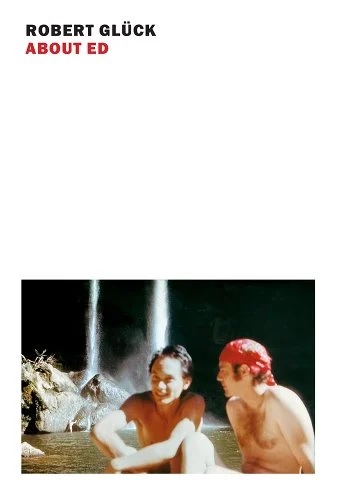 Book you're an evangelist for:
Book you're an evangelist for:
Adorable by Ida Marie Hede. Hede is a Danish writer and poet, and her novel is a portrait of a young family, an exploration of a porous world where grime, bacteria, death are united with birth and love. It's scary and funny, with amazing prose.
And The Burning Plain and Other Stories by Juan Rulfo. If Rulfo married Maurice Blanchot, their son might be Roberto Bolaño.
Book you've bought for the cover:
Memoirs of Bob, The Spotted Terrier. I've had this book for decades, though I am this minute reading the first sentences by this erudite puppy, which are astonishingly apropos: "The love of fame seems natural to every thing that breathes; even the notoriety of infamy has been thought more desirable than the oblivious shade of unaspiring innocence. Else how can we account for several sad dogs of the human race, of both sexes, publishing their disgraceful memoirs; and thus inviting that reprobation which they might have escaped, had they kept their secrets to themselves?"
Book you hid from your parents:
When I was a teenager in my orthodox Jewish home, I was in love with the Christian mystics. For example, The Cloud of Unknowing. I was very surprised when a book by Martin Buber, the Jewish philosopher, appeared on my desk. So, then, it seems they were watching after all?
Book that changed your life:
Eroticism, also called Death and Sensuality, by Georges Bataille. I learned what sex and death have in common, and what actually constitutes a community.
Favorite lines from a book:
"You have delighted us long enough." Mr. Bennet gently quells his not very talented daughter in Pride and Prejudice.
"He hates an infidel much less than a heretic, and prefers a heathen many times to an infidel." Conrad describes a Grand Vicar in Nostromo, though this could be a description of the history of the left in San Francisco.
"But is the earth as full as life was full, of them?" --Frank O'Hara
Five books you'll never part with:
The Obituary by Gail Scott. This novel of unalloyed sadness and sly humor dissects repressed history and the disjunctions of language, gender, and race in Montreal.
Honey Mine, a collection of Camille Roy's stories. A deeply rich and tasty exploration of outlaw lesbian life in the '80s and '90s in San Francisco. "I detail the experience without making it intelligible."
Argento Series by Kevin Killian. My heart swells with pride as I claim his masterpiece for San Francisco. Argento Series is Killian's "Lament for the Makers," a monument reaching halfway to the stars for our fallen stars and dreams lost to AIDS.
Lunch Poems by Frank O'Hara, though not necessary to keep since I know most of them by heart.
A Voice Through a Cloud, or any book by Denton Welch. Welch does not seem to have an agenda, yet he carries on in prose so accurate and free that he retunes my ears.
Book you most want to read again for the first time:
No doubt about this one: In Search of Lost Time by Marcel Proust, now that so many wonderful translators have tackled it, like Lydia Davis. I read the old Scott Moncrieff translation in the early '70s, a masterpiece in its own right, but not exactly Proust's masterpiece. Moncrieff suppressed changes in tone and diction, preferring to keep the prose elevated.
Book Candy
Book Candy
Use the Oxford English Dictionary's birthday word generator to find out which word shares your birthday.
---
"The History of Cartography, the 'most ambitious overview of map making ever,' is free online," Open Culture noted.
---
"Check out the top 10 most popular books at the New York Public Library in 2023." (via Mental Floss)
Rediscover
Rediscover: Antonio Negri
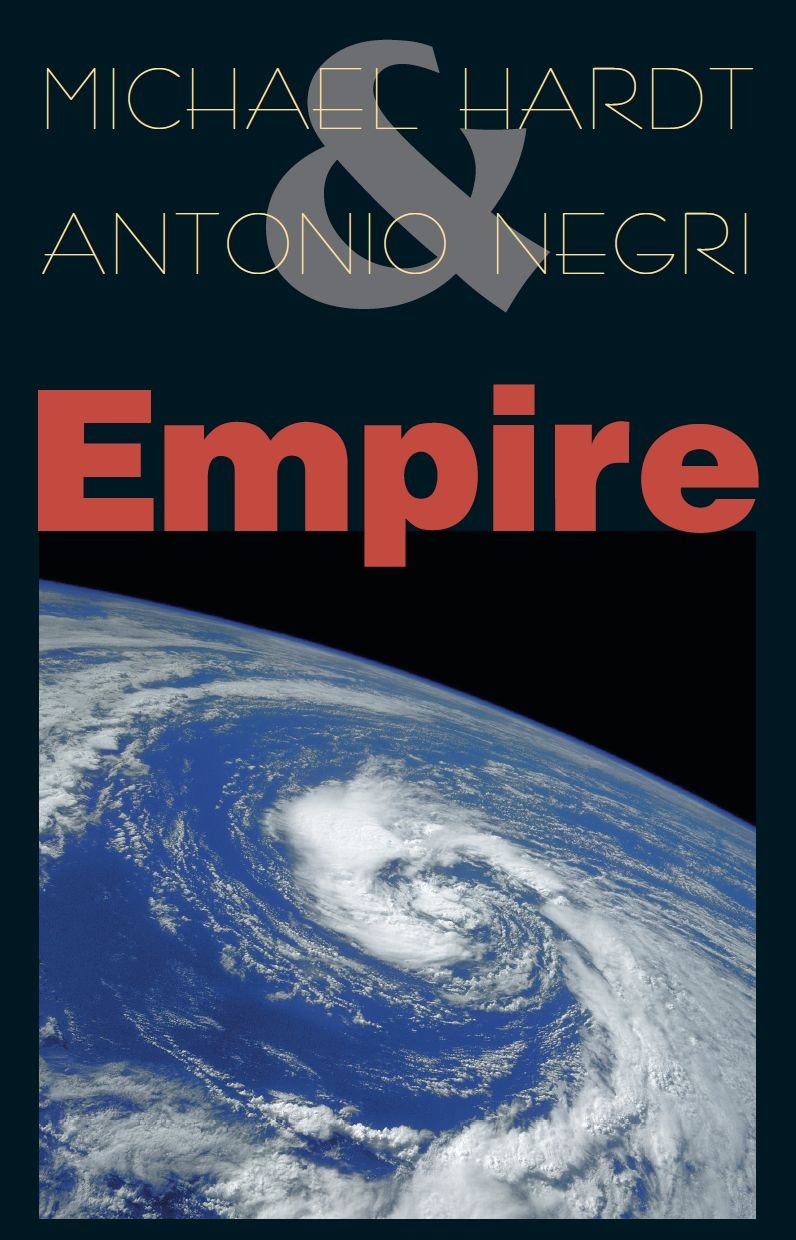 Italian philosopher Antonio Negri, "whose essays and activism calling for a new workers' revolution landed him in prison in 1979, and who two decades later became a global intellectual celebrity for writing Empire, a book hailed as the new Communist Manifesto," died December 16 at age 90, the New York Times reported. As a leading figure of the Potere Operaio (Workers' Power) movement of the 1960s and '70s, Negri inspired followers with his forceful essays as well as his willingness to go out to the streets and factories of northern Italian cities, organizing workers and calling for revolution.
Italian philosopher Antonio Negri, "whose essays and activism calling for a new workers' revolution landed him in prison in 1979, and who two decades later became a global intellectual celebrity for writing Empire, a book hailed as the new Communist Manifesto," died December 16 at age 90, the New York Times reported. As a leading figure of the Potere Operaio (Workers' Power) movement of the 1960s and '70s, Negri inspired followers with his forceful essays as well as his willingness to go out to the streets and factories of northern Italian cities, organizing workers and calling for revolution.
Empire (2000), co-authored with Michael Hardt, "did something similar for a new generation of the left, offering what many found a compelling Marxist interpretation of globalization after the Cold War," the Times noted. "Though it was written in dense academic prose and clocked in at nearly 500 pages, it was an immediate hit." Translated into a dozen languages, the book made bestseller lists "and secured Mr. Negri a permanent slot among the global progressive intelligentsia, alongside figures like Noam Chomsky and Slavoj Zizek."
"What Hardt and Negri offer is nothing less than a rewriting of The Communist Manifesto for our time," Zizek wrote in a blurb for the book.
Negri and Hardt went on to write two sequels--Multitude: War and Democracy in the Age of Empire (2004) and Commonwealth (2009), both of which attempted to outline means of resistance against globalized capital.
Despite criticism that Negri and Hardt had "underestimated the continuing relevance of the nation-state--for example in the Russia-Ukraine war or trade tensions between the United States and China," the Times noted that Negri's supporters claim "his work can also be seen as part of an evolving understanding of the complexities of 21st-century society, in which both corporations and governments have the power to shift geopolitics, while global grass-roots movements can emerge seemingly overnight and change the world."
"Empire was written at a juncture that was completely different than you find today," Sandro Mezzadra, a professor of political theory at the University of Bologna, said. "But there are many ideas in Empire that remain inspiring and challenge us to adapt them to the new conditions of globalization."
Empire is available from Harvard University Press.
| Advertisement Meet belle bear! |


